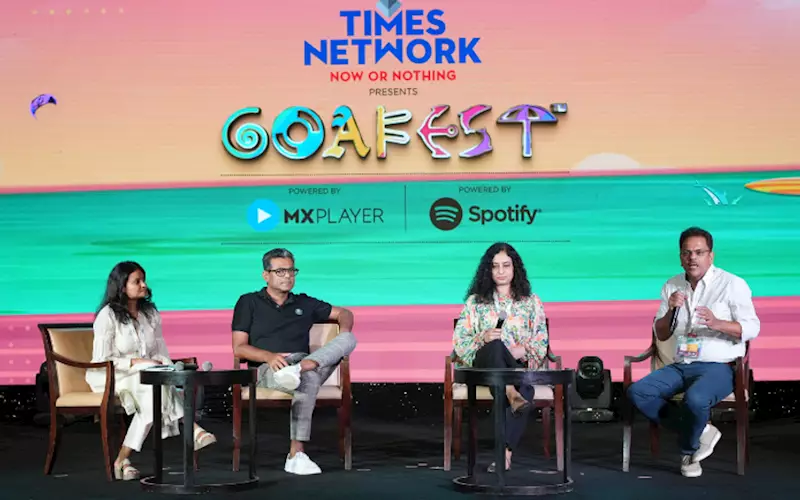Goafest 2022: What diversity, equality, inclusion mean
Rohit Ohri, Suhela Khan, Rathi Gangappa and Dheeraj Sinha discuss the importance of DEI in the industry on the final day of Goafest.
10 May 2022 | By PrintWeek Team
Day three of Goafest 2022 saw Suhela Khan, country program manager, We Empower Asia, UN Women; Rathi Gangappa, CEO, Starcom, and Dheeraj Sinha, CEO and chief strategy officer - South Asia, Leo Burnett and chairperson, BBH India, discuss what diversity, equality and inclusion mean for the industry and how it could be made better. The talk was moderated by Rohit Ohri, chairperson and CEO, FCB Ulka.
How far has the industry gotten
Ohri asked Gangappa what she thinks is actually needed from an organisation, in order to become truly diverse.
She started off by citing the example of the Advertising Agencies Association of India (AAAI), which finally had its first women president - Anupriya Acharya, after 35 years.
“Companies have to want to make that change. That’s the first fundamental move. It’s not just about a narrative, but about recognising merit and seeing more women in leadership roles. This should not be just a box to tick. Women have to have the confidence to come on board out of their own merit. I’m seeing a change happening in our organisation as well, in we embrace diversity and inclusivity,” Gangappa said.
Pushing the envelope
When the need is established, it comes down to what needs needs to be done to look at DEI (diversity, equality and inclusion) from a communication perspective and to push its agenda forward.
Answering this, Sinha put this onus on how the work gets done and what kind of word goes back. “Nothing does more damage to our industry than the idea of Mad Men. The whole idea that men can have their own way in businesses is horrible. I hope that never comes back. How are you building an agency of comfort? Our business is being notorious in the way that we’ve lost really great women talent once they’ve started a family. At a ground level, how do you build a culture where women feel loved, engaged and welcome?” he asked.
The problem and the solution
For Khan, the problem is in the fact that women do not have access to similar opportunities and resources, which impact their productivity and growth.
She said, “You need to have a more diverse workforce and equitable policies that impact growth, productivity, drive innovation and lead to more customer acquisition.
UN organisations have the ‘Unstereotype Alliance’ to look at power of advertising and media, in creating a progresive portrayal of men and women and people from all diversities. This is important because advertising has the capability to bring the change we’re all aspiring for.”
She also suggested the three Ps framework which comprises presence, perspective and personality. “Some people in certain ads are not represented. Look at what damage it can do to not be present in the pop culture. We need to talk about perspective rightly and when we portray a character, how truly are their rare personalities being depicted. There are seven womens empowerment principles that can be adopted by all companies, to look at policies from a gender lense.” added Khan.
The result of being truly diverse
When speaking of how Covid led to the rise of inclusivity and diversity leaders, Gagappa stated that the pressure has been on both men as well as women. “This pressure has helped create a very acceptable hybrid model for more women to come in. There are positives and negatives about this. But, we’re seeing more women coming in to the work force.” In the end, the panel ruled that diversity was indeed the top agenda for everybody.
Speaking about where it stands at his company, Sinha said, “I’ve been for client pitches where they’ve told us they want to work with us because we have so many women on the team. It’s part of system, not just at the policy level. There have to be sensitisations all across the board. Leaders have to realise that losing out on 50% of their talent base is a horrible growth strategy. You have to do whatever you can to keep these people in the industry. Since most leaders are men, it’s important for them to appreciate the power in the women’s team. Once you appreciate that, you wont need a policy to push it down.”
Ohri concluded by stating that when a company creates structures around diversity and inclusion, they unlock an organisation’s superpower and truly unlock growth.
Source: Campaign India











 See All
See All